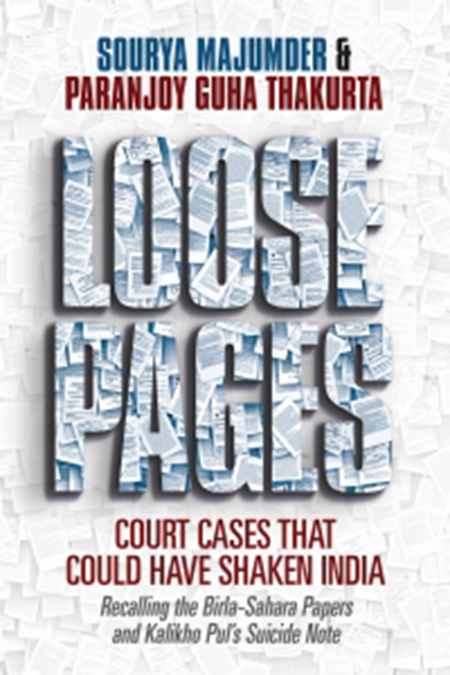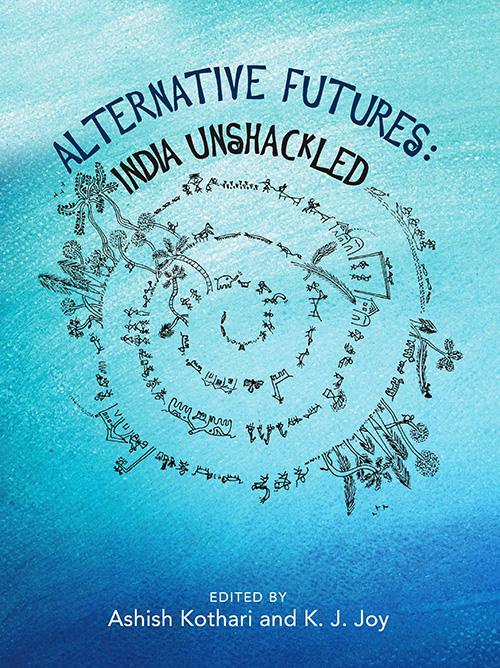Vivek Kaul is no ordinary journalist interested in the working of the planet’s political economy. Like many “generalist” journalists, he writes on personal finance, marketing and branding. And if that were not enough, he has an abiding interest in cinema and music.
But wait! He has written not one, but three books in a row, on the subject of money, credit and finance that seek to make this complicated and difficult topic more accessible to readers who may not be familiar with economics, commerce, banking and accounting.
This is a daunting task at the best of times and to Kaul’s credit — no pun intended — he makes a valiant effort. The first book in the Easy Money trilogy had a self-explanatory subtitle: Evolution of Money from Robinson Crusoe to the First World War, while the second dealt with the inter-War period between 1914 and 1945. The third book deals with contemporary issues and is, not surprisingly, the most dense, despite the author’s best attempts to demystify the works of dozens of writers and analysts from across the world, not excluding superstar economist Thomas Piketty.
As he did in his first volume, in the beginning of the third volume, Kaul quotes a research paper written in June 1885, Shall Silver be Demonetised, which states that although money is “one of the oldest human inventions, there is none that has been perfected so slowly”. The author firmly believes that this paper by a liberal American academic who held the first professorship in sociology at Yale College, William Graham Sumner (1840-1910), remains as relevant today as it was then.
The appendix of the first book contained a short section with a titillating title on doubling your money in 45 days which is there in the third book as well. This dwells at length on the abiding legacy of the Italian immigrant to the US, Charles Ponzi (1882-1949), who acquired notoriety for starting a money circulation scheme that went bust. Nevertheless, Ponzi showed the way to an innumerable number of scamsters across the world, most of whom worked closely with powerful politicians, influential bureaucrats, and their backers and collaborators from the corporate sector.
The titles given by Vivek Kaul to different chapters are aimed at whetting the appetite of his readers: Mad Cow Disease, The British Screwed Us, That Four-letter Word Called ‘Risk’ and Pure Intellectual Masturbation. One would not expect footnotes in a book with such chapter headings, but wait: there are loads and loads of them, meticulously sourced by a senior journalist. The book is littered with quotes and references, which is particularly useful for students and lay readers.
What this reviewer found particularly prescient about the third book in the Easy Money series comes in the epilogue of the book and one should hopefully not be accused of revealing the conclusion of a nail-biting thriller. Kaul anticipates the next big wave in the ongoing “Great Recession”, which started seven years ago and was compared to the Great Depression that took place seven decades earlier. Yes, one is here talking about the dramatic slowdown in the world’s largest economy in terms of purchasing power parity, that of the People’s Republic of China.
When a country whose national income has grown by double-digits for the better part of three decades starts showing signs of significant deceleration, the rest of the world had better realise that this would impact their own wallet as well. The author outlines the consequences of the depreciation of the yuan or renmimbi, and the fall in the demand for raw minerals and other commodities. He quotes economist Worth Wray opining that the “new (Chinese) government under President Xi Jinping is intent on popping the domestic debt bubble and allowing widespread defaults”.
The China slowdown story is not over. Nor is the contemporary history of Greece. Russia remains in recession with oil prices having collapsed. Many believe that in the age of the Internet, the www in the phrase “world wide web”, would characterise the business cycle paths of economies of large parts of the world. Readers of the book would be able to get a better understanding of the complicated and convoluted international world of big capital.
All of this indicates to this reviewer that the big question relating to the current worldwide economic and financial turmoil is whether the roots of the crises are “in” the system or “of” the system — here’s a suggestion for a fourth book in the series.
International capitalism can never be the same, but that is stating the obvious. Kaul’s ideological leanings (like that of Piketty) are not exactly towards those who find it important to refer to the German philosopher and economist Karl Marx (1818-1883). Yet, what cannot be denied is that Marx as well as British economist John Maynard Keynes (1883-1946) have returned to prominence after the global financial meltdown, and their analytical tools are as relevant as ever.
The author perceptively sells his book: “It is about America, the doyen of capitalism, becoming a great welfare state. It is about Communist China becoming the most capitalistic country in the world, earning billions of dollars doing so, and using those dollars to help finance the great American budget deficit.”
Go for it. And the two others that came before it as well.


